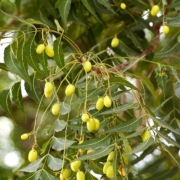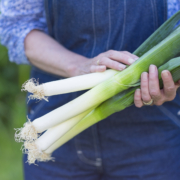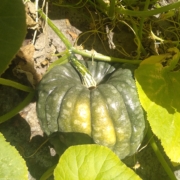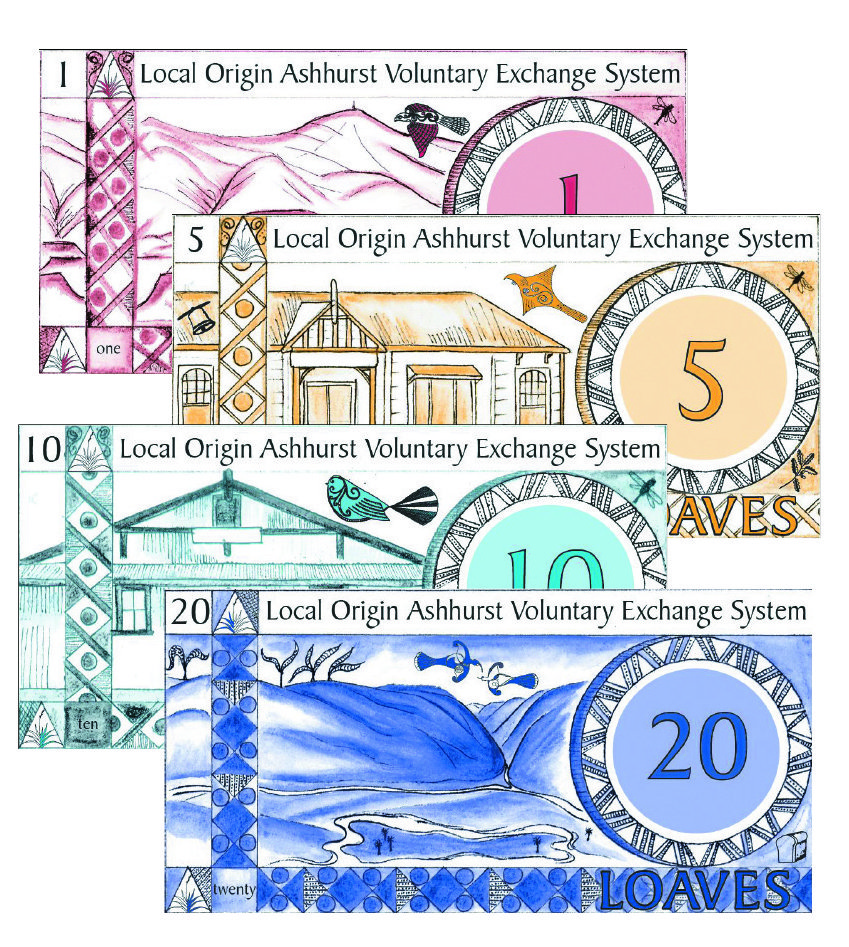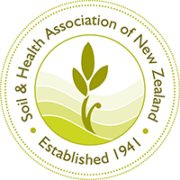Behind the scenes of the Organic Act
Over four decades, thousands, if not hundreds of thousands, of voluntary hours have been committed to establishing a solid foundation for organics in New Zealand. Brendan Hoare recounts the journey, the challenges, and the lessons learnt in the creation of the Organic Product and Production Act 2023.
We hope you enjoy this free article from OrganicNZ. Join us to access more, exclusive members-only content.
Like all landmark events, there is a back story. Our tumultuous expedition to protect and promote organics in Aotearoa New Zealand through regulation is no different. Like all journeys, there are multiple trials, tribulations, twists, and turns that test intent, motivations, and determination. This article outlines the ten-year journey that led to the passing of the Organic Products and Production Act 2023 (Organic Act) and will conclude with key observations for present and future. The article follows on from ‘Getting our Organic Act Together’ (OrganicNZ March/April 2020).
The Organic Products and Production Bill became law on 5 April 2023.
It is the most profound change to the organic sector in New Zealand to date and will shape our progress for decades to come.
Since the 1980s, the organic sector has sought from the government a policy to protect and grow organic. By 1999, we’d gone as far as to publish and describe in Organic NZ describing our preferred future that required: “…government regulation standards, for both domestic and export markets, and support policy that safeguarded organic e.g. spray drift legislation”.
The Organic Federation of New Zealand (OFNZ)1 formed in 1999 and morphed into Organics Aotearoa New Zealand (OANZ) as a united force representing the organic sector with the core purpose to ‘grow and develop organic’. OANZ identified regulation and national standards were required to do this2.
OANZ’s formal creation in 2006 had government funding to assist it in its initial development. The funding ran out without its intent being fully achieved. Prior to 2012, OANZ had nearly collapsed. Rebuilding was a slow, incremental task which began with the launch of our 2012 Organic Market Report (Market Report), on 6 March 20133 in Parliament. This launch was not supported or attended by the National-lead government, but by opposition MPs; Green Party member Steffan Browning, and Labour’s Damien O’Connor. (O’Connor would, in 2018, be the Minister of Primary Industries and introduce the Organic Bill to parliament.)
By June 2013 OANZ had engaged communications expertise from Christine Dann and we raised awareness of the need for regulation by utilising the Market Report, front-page articles in NZ Herald highlighting the proliferation of ‘Dodgy Organic Labels’4 and the fact that, at that time, all the top 25 organic trading countries had regulation, except New Zealand, Australia, India, and several others did not.
OANZ decided to focus on and initiate discussions with government officials responsible for market regulations and consumer protection. We developed and published an ‘Introduction to Regulations’ paper for our members, and officially adopted the OANZ Regulation Working Group, which, for the first time, consisted of all the certification bodies. It also included the Organic Exporters Association of New Zealand. We also secured a meeting with Ministry of Primary Industries (MPI) directors to explain the situation and opportunity. We were on a roll.
By September 2013 we had met with Food Minister Hon Nikki Kaye, MPI’s technical lead Glen Neal, and Director of Food Policy Karen Adair. Nikki Kaye’s advisor was MPI’s Fiona Duncan who had been close to the sector’s work since 2002. We had invited the Primary Industry Minister Nathan Guy, but he was not available. The meeting with Kaye was positive and progressive and as agreed, we spent the next six months defining the problem with MPI’s technical and policy teams. We liaised with a wide cross-section of the organic community who openly shared examples of organic fraud and risks to their business. By March 2014 we, with MPI, had identified that there was a problem that required regulatory protection. The regulatory framework as it was in 2014 offered no protection for organic producers and consumers and also jeopardised potential trade relationships with international markets that had regulated organic. MPI presented these findings to OANZ’s AGM in Auckland on 4 July 2014, affirming that a regulatory approach was to be sought.
Simultaneously OANZ had actively engaged and enrolled what it called its ‘5 + 2 strategy’. Horticulture New Zealand, New Zealand Winegrowers, Beef and Lamb, Dairy NZ, and the Federation of Māori Authority being the five and Countdown and Foodstuffs being the two, were provided clear logic and rationale for regulating organic. Progress with New Zealand’s primary industry, all political parties, and government was positive and by December 2014 OANZ had released a position paper on why to regulate organic in NZ. This was well received by everyone. All was on track. We had created great working relationships across the organic community, primary industry, major retail and government. We felt positive and were still on a roll.
By February 2015, as we were gearing into what promised to be a prosperous year, we came across several roadblocks. Firstly, critical MPI staff who had been instrumental in progressing the organic case had changed roles and our Ministerial champion Niki Kaye had been promoted to Minister of ACC. With new staff and Minster Nathan Guy now in charge we had to rebuild relationships, and felt comfortable in doing so. However, at the end of April 2015 MPI senior staff advised that any regulation would be under the Food Act 2014 and when we explained this would not work, because organic was not just about food, we were told categorically that organic was now “a low priority for MPI”. MPI provided us their very (in)famous ‘Development of Domestic Organic Regulation Programme scorecard which demonstrated their assessment only gave us 45 out of 365 – that is 12.3%!
While this seems incredulous, or even cynically humorous now, it was utterly devastating then.
In May we reflected on our work on regulation to date. As we communicated MPI’s decision to discontinue work on regulation to our wide community, we received full support,shared frustration and dismay.
This was a critical moment for the regulation of organics and OANZ. While we had rebuilt trust and demonstrated value in OANZ as a national organisation, and communicated the need to protect and grow organic through regulation, it was also true that this had largely been achieved through the vision, networks, drive, and tenacity of myself as Executive Chair, the communications and political skills of Christine Dann, and reliance on a few critical members from leading organic sectors; all voluntary. We were exhausted. It was not sustainable. We needed help and resources.
In August 2015 we held an OANZ national special meeting to explain the situation. Doug Voss, the Chair of the Certified Organic Kiwifruit Organisation became Chair of OANZ, a Board was elected, I moved to being the Executive Director, and Niki Morell took over Christine’s work to lead communications.
We wasted no time re- engaging past leaders of MPI as to what might be the reason for MPI’s ‘change in heart’ and utilised the sector’s networks to lobby political parties and other Ministries such as the Commerce Commission, Ministry of Business and Innovation, Standards New Zealand, and the Ministry of Foreign Affairs and Trade. We transferred our energy towards directly engaging the Primary Production Select Committee (PPSC) where we found favour across all political parties. By the end of year, we had rekindled the ‘OANZ Regulation Working Group’ and changed its name to the ‘Standards Working Group and included MPI staff from their Official Organic Assurance Programme (OOAP)’ The name change was to appease the concerns that using the word regulation would upset trade negotiations by giving the perception that we did not have any regulation; which was true.
We utilised the frustration of the sector being told there ‘was no need to protect or grow organic’ to raise substantial sponsorship and presented our updated 2015 Market Report to Parliament on 7 April 2016. This time we had the leadership of the PPSC chair and National MP Ian McKelvie and support from Greens, Labour, and NZ First as well of course the whole organic community. It was a great success.
The OANZ 2016 Market Report5 again demonstrated substantial growth and the requirement to safeguard the domestic and international markets. We emphasised one simple message: serious export earnings were increasingly at risk because we did not have a domestic organic regulation. However, this time, immediately following the Market Report launch, we had arranged a public presentation with the Primary Production Select Committee (PPSC) where we reiterated OANZ’s simple, clear four-point plan to:
- Regulate the use of the term organic
- Develop a single national standard.
- Adopt MPI’s OOAP Technical Rules as the National Standard.
- The National Standard will cover export, domestic, and imported certified organic product.
The PPSC’s subsequent report noted that: “We support the work OANZ is doing and agree that a universal regulated standard should be developed and implemented as soon as possible.”6
The Minister’s official response to the PPSC was that he: “Welcomed an application from the sector to become a Primary Growth Partnership programme recipient in the future”, and that we would have to meet the criteria.
Within a month we had developed a simple plan and met with Minister for Primary industries Nathan Guy. By June, off the success of the Market Report, meetings with PPSC, and the Minister, we had created another position paper on the development of ‘Organic Regulation and Standards’ and delivered this to MPI. When, six weeks later, we had still not received areply from MPI, we knew where we had a problem.
As chance would have it, I met Scott Gallacher, the then Deputy Director General Regulation and Food Assurance at a Building Brand and Reputation Across Boarders conference in July 2016, we agreed to bring OANZ’s grievance to MPI’s senior management’s attention. In August, Scott hosted a meeting with Director Food and Regulatory Policy Karen Adair and Director Plants, Food and Environment Peter Thompson.
This meeting resulted in direct access to the Manager of Food Policy Colin Holden and senior policy staff. The outcome of the communications was that while MPI may have shared their support for our goals, their solution was to ‘consider’ bringing us under their Future of Food programme and utilising existing regulations that would connect with Ministry Business, Innovation & Employment, the Commerce Commission and the Fair Trading Act. They were struggling to find where and how we fitted. While we were being heard and told there was an understanding of how complex organic was, we still felt we were not being understood. We had to wait for MPI policy to come back to us.
This period also brought to a head internal issues withing OANZ’s members that had been brewing since the formation and appointment of a full board. This was largely centred around existing relationships between the certification agencies of BioGro, AsureQuality, and the Exporters group, who had a direct relationship with the MPI staff running the OOAP, and the position that OANZ was taking on behalf of the whole sector directly with senior MPI staff and the policy division. The tension was potentially divisive. The espoused threat was that anything new would disrupt existing trade relationships with markets through the OOAP and we had changed the name of our working group to appease this. However, through deeper engagement and correct persistence, OANZ’s found this position not to be of benefit or serve all its members and what is best for organics in Aotearoa New Zealand – hence its name.
We continued to build relationships with key industry sector partners, in particular, Horticulture New Zealand and New Zealand Winegrowers, which both represented large volumes of certified organic growers and export product. The Chair of Horticulture NZ at the time, and some of their board members, were organic licensees. It was great to have others singing our praises’ and voicing our concerns from another perspective. This gave our collective position gravitas.
We also stepped up the engagement. Simultaneous to our relationship building in the commercial sector and financial sector like ANZ, we organised for the PPSC to visit one of NZ’s leading organic regions – Hawkes Bay – and meet the whole OANZ Board. Our rationale was to demonstrate that organic is a total system from production to ingredients, inputs, products, services and yes, food, with a discerning consumer who participates in its definition and setting of standards. So, we wined and dined, visited organic viticulture, chicken, vegetable, and apple production systems at all scales, and demonstrated our world. MPs got to see first-hand what we had been talking about and got to talk directly to those most affected. This is always powerful.
The result of our networking (nationally and internationally), hosting, sharing, and lobbying was profound. We had mounting proof that the current MPI strategy was not working and was resulting in opportunity and advantage being lost. NZ’s failure to act was affecting growth in export markets.
This was an intense period of engagement that delivered results and by early 2017 we had returned to constructive dialogue with MPI – and organised a meeting with the recently appointed Minister for Food Safety David Bennet (who is a certified organic dairy farmer) and confirmed his commitment to establishing regulation. Special mention needs to go to Horticulture NZ’s Mike Chapman for hosting and arranging some of these meetings.
At the end of 2017 we had an election and a change in government. Damien O’Connor (who had been supportive since 2013) became the Minister of Agriculture, Biosecurity, Food Safety, Rural Communities, and later Trade. Being a-political and securing all political parties as to the benefit of organic had deep ramifications.
OANZ then met with Minister O’Connor who, on the advice of MPI’s policy team’s review, concluded that to protect and grow organic in New Zealand needed to have its own organic act.
Then on 20 June, our 2018 Market Report was launched in parliament for the third time. Ministers attended, as did MPs from all political parties, MPI and other ministry agencies, ambassadors, and a full array of organic practitioners. It was a great celebration; there was a sense of progress and success.
This period had been exhilarating, but exhausting on resources and relationships. The organic sector’s efforts were voluntary and draining on personal and inter-relationships on those that had led the work.
As OANZ reconciled this and went through its own internal changes our new law was being written by MPI staff. The first reading of the Organic Products Bill took place on 19 March 2020. On 5th April 2023 it was passed into law. It took just over three years with three readings, and a select committee process, before it became law.
The process has seen multiple reviews, a name change, created extensive debate both within and between the organic sector, and with and within MPI and politicians. MPI’s consultation process has improved over time. During this process it has reiterated that the organic sector is complex, diverse, not homogeneous, but of a common culture outlined in our principles of health, ecology, fairness and care.7 We remain committed, passionate, and seek practical change. We are relentless and persistent in our pursuit.
Engage to change
As the sector works with MPI to develop the regulations that will give shape to the Organic Act, key lessons from the decade include:
- Stay close and connected with the community that you represent. Engage in participative, open transparent processes by sharing openly and listening. Be honest and clear in all responses, say when you do not know, work together to find solutions.
- Have clear, powerful effective communications and engage professionals to help do this.
- Ask for help, people want organic to succeed.
- Always be inclusive of all political parties when engaging change at a national level. Politicians and political parties come and go from being in Government.
- Build relationships and maintain them at every opportunity.
- Find and nurture relationships with empathetic officials across multiple Ministries. People get promoted in their careers.
- Stay true to organic values.
Moving forward
As we move closer to implementing the Organic Act through the regulations8, there is a lot for us to consider. They include:
1. What training would be required to manage the Act, regulations, standards, and auditors? What would that cost? Who is going to pay and through what system?
2. The organic standard may be owned by Government, but, who will manage it?
3. What would the future of OANZ look like and how will it be funded?
4. How will education and training be managed throughout the supply chain and by whom?
5. How will existing and new certification agencies engage with the national standard?
6. Will there be a national mark (logo)? Who will own, maintain and manage it?
7. What role will MPI and other key government agencies have in the new model?
8. How will it fit in global best practice models? Could New Zealand lead? Who would lead?
9. How do we ensure the organic sector remains both rigorous and united?
10. What other opportunities and expertise is required?
With the passing of the Act and development of supporting regulations, it is critical that we remain united, focused, strategic and work together with officials to ensure our Organic Act achieves it purpose to:
– increase consumer confidence in buying products labelled “organic”
– increase certainty for businesses claiming products as organic
– facilitate international trade in organic products.

References
- Original members of OFNZ were Soil and Health Association, BioGro NZ, Bio-Dynamic Association of NZ and Organic Products Exporters Group. ↩︎
- Ministry of Agriculture and Forestry, ‘Organics Working Group Report’. September 2001 ISBN 0-478-07647-9 ↩︎
- https://www.oanz.org/market-reports ↩︎
- NZ Herald 6 Apr, 2013 Pg 1 ‘Dodgy ‘organic’ labels fooling health conscious food shoppers’ ↩︎
- https://www.oanz.org/market-reports ↩︎
- Pers comms – letter to OANZ ↩︎
- https://www.ifoam.bio/why-organic/shaping-agriculture/four-principles-organic ↩︎
- https://www.mpi.govt.nz/agriculture/organic-product-requirements-in-nz/changes-to-organic-products-law/ ↩︎
Brendan Hoare is a managing director of Buy Pure New Zealand. His involvement in organics has included holding positions with Soil & Health NZ (president), BioGro (director), OANZ (founder, executive chair, and CEO) and IFOAM (world board member). He is serves on the Organic Farm NZ Council. His business is run from the OFNZ certified ‘Long Breath Farm’, on the edge of the Waitakere Ranges.

